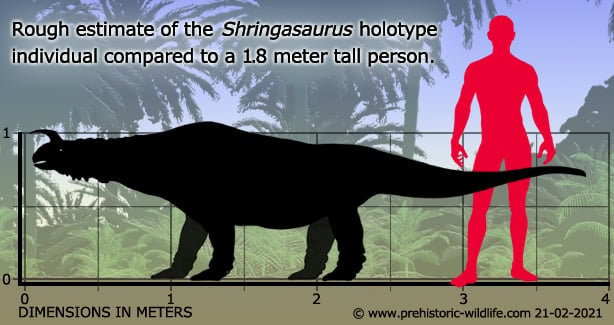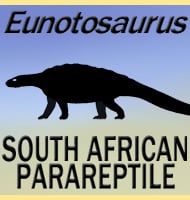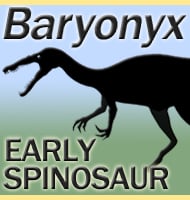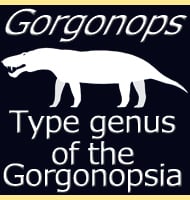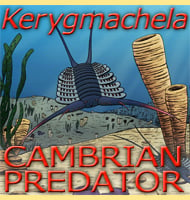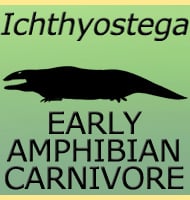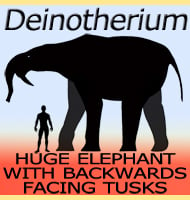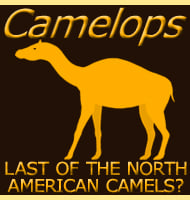In Depth
There are many interesting archosaurs that lay within the Allokotosauria group, and Shringasaurus is no exception. Although the holotype skull of Shringasaurus is incomplete, it is enough to confirm that this archosaur had large horns that rose up from above the eyes and pointed forwards. Horns such as these are usually seen as a means of display, though they may have also been weapons that rival individuals competing for dominance may have used against one another. There is speculation that these horns may have been larger in males, perhaps even absent in females. However, this speculation cannot be confirmed at the time of writing due to the lack of remains of differing individuals.
As far as the rest of the animal is concerned, Shringasaurus was a quadrupedal plant eating archosaur. The neck of Shringasaurus was fairly long in proportion to the body, something that would have allowed a greater reach for feeding upon plants. This was a time when early dinosaurs including longer necked sauropodomorph dinosaurs were only just starting to appear. The teeth of Shringasaurus also have a shape that suggests specialisation for eating plants. The limbs of Shringasaurus seem to have been at least partially sprawled out to the sides, perhaps even fully so.
Further Reading
- A new horned and long-necked herbivorous stem-archosaur from the Middle Triassic of India. - Scientific Reports. 7: 8366. - S. Sengupta, M. D. Ezcurra & S. Bandyopadhyay - 2017.
